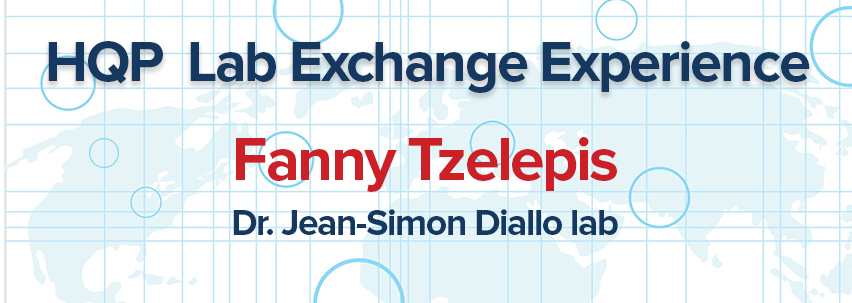By: Fanny Tzelepis

Scientific collaboration is increasingly prevalent. Important advances in areas such as cancer biotherapeutics have resulted from combined efforts, complementary knowledge, and technology transfer. When I joined Dr. Jean-Simon Diallo’s laboratory, the immunotherapeutic properties of oncolytic virus were already apparent. In particular, the ability of oncolytic viruses to boost antigen-specific T cells in heterologous prime-boost vaccination regimens had recently been established. This drove my interest in the oncolytic virus vaccine approach, and in thinking about new ways to improve it. To this end, I saw the opportunity to establish a collaboration with Dr. Silvia Boscardin from Universidade de Sao Paulo – Brazil, a colleague from the same laboratory where I did my PhD studies. Dr. Boscardin is a proficient immunologist and her work focuses on the development of vaccines to infectious disease by specifically targeting dendritic cells that are essential for generating adaptive immune responses. Her approach met all the qualities that I was looking for as a component of an oncolytic virus vaccine. After establishing this collaboration, I worked to implement the Dr. Boscardin’s antibody-based approach in the Diallo laboratory. However, I initially faced issues with antibody production that remained unsolved, even after multiple online meetings with Dr. Boscardin and consultation with local experts in Canada. The BioCanRx lab exchange opportunity was essential for me to overcome those issues and gain effective expertise in the production of high quality antibodies for use in animals. The provided funding allowed me to visit Dr. Boscardin’s laboratory and learn the entire process for producing antibodies. I was able to identify the critical steps that affected my initial attempts to obtain high quality product. Furthermore, I gained access to new technologies derived by Dr. Boscardin employing a similar concept. The new oncolytic virus vaccine approach employing Dr. Boscardin’s technology is already showing promise in animal models. We have also begun exploring and modifying this approach for use with other immunotherapies as well. The BioCanRx lab exchange program helped to strengthen the collaborations between our lab in Ottawa and that of Dr. Boscardin in Sao Paulo, and opened doors for future collaborations with other researchers from Sao Paulo as well.

